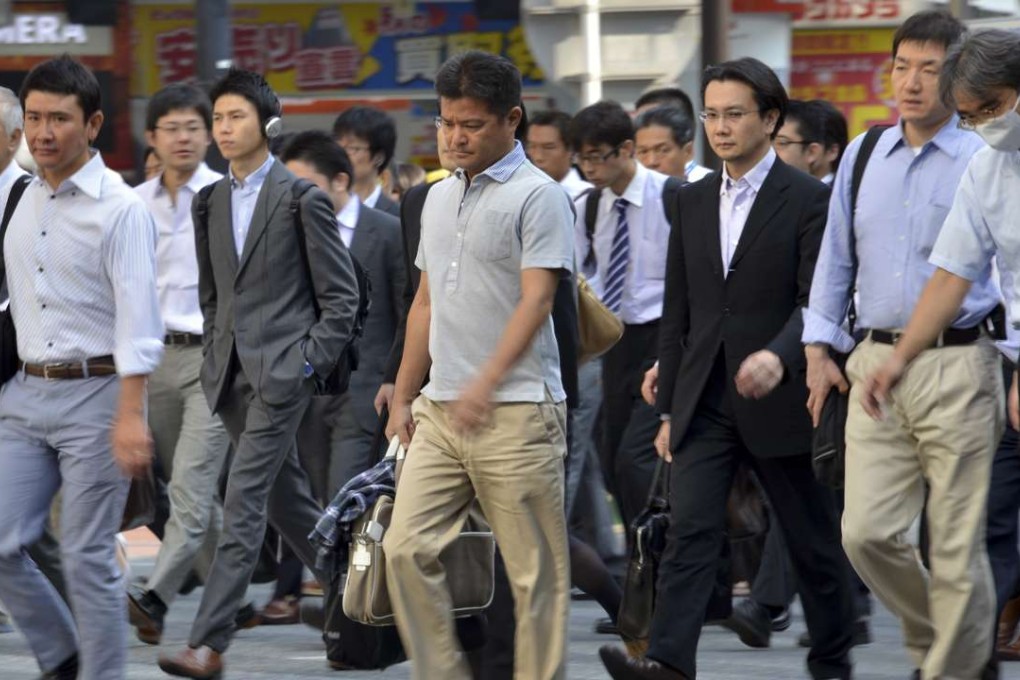Japan’s millennial men don’t drink, don’t drive, don’t worship work – what do they do?
For Tokyo’s work-hard, play-hard corporate elders, a new vice-free generation of men is a sobering thought for bottom lines

Japan’s millennial men must be such a disappointment to their fathers’ generation.
First, they stopped buying wristwatches – the must-have symbol of being a grown-up for the Japanese men who rebuilt the nation after the devastation of the war years – because they all had mobile phones instead. And then they stopped purchasing cars.
Akio Toyoda, president of Toyota, expressed his frustration about this turn of events in 2013 when he said in a speech that modern Japanese men puzzled him. He wondered where they got the nerve to ask women out because, in his generation, a chap didn’t get a date if he didn’t have a car.

The very act of defying a company’s decision used to be unthinkable, but a new study by Chuo University, the Work-Life Balance and Diversity Promotion Research Project, has revealed that an eyebrow-raising 42.7 per cent of male employees would do everything possible to resist a transfer, perhaps even resign.
